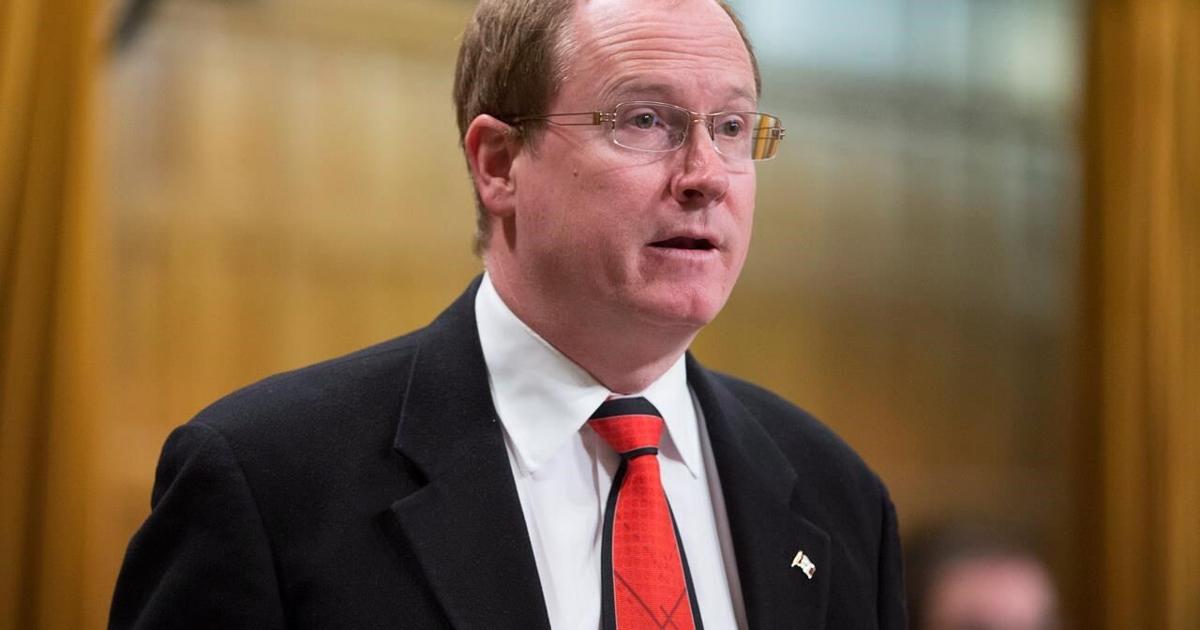Politics
Drawing The Line Between Personal Politics & Corporate Policy – Forbes

Increasingly corporations are being asked to comment on social and political issues. This raises a host of questions that the company needs to purposefully think about.
There are many constituencies who are asking a company’s CEO and leadership teams to comment on a wide array of issues.
Employees, customers, and investors may or may not want insight on a company’s philosophy and stance on high visibility issues.
The social concept of a corporation really came to the forefront with the death of George Floyd as well as subsequent major issues. This triggered deep focus on DEI and forced companies to focus and ask themselves if they really understood the black American experience.
Another recent issue has been the war in Ukraine, companies were expected to take a stance by employees and other stakeholders and publicly state whether they would continue to do business with Russia.
Another hot button topic corporations have had to contend with is Roe v. Wade.
Boards have to ask themselves what the upside of opening Pandora’s box of political division by commenting on highly charged social /political issues is?
It is more important than ever to take the time to have a deep internal discussion with the CEO, leadership team and boards to create a framework and policy on when and if the company will comment. This allows for a thoughtful approach without the emotion of feeling like you must respond the moment there is a big issue in the news cycle.
When considering whether to comment on a particular topic, ask yourself:
– Is this core to your business?
– Which constituencies are most activated / impacted by this issue?
– Is this an issue that pertains to company policy, employees, customers, investors, or some material aspect of the business? Or is it an issue of personal politics?
– How divisive/polarizing is the issue?
– Is it mandatory or optional to comment?
Companies such as Amazon
AMZN
, Yelp, JPMorgan, Dell have responded to Roe V. Wade by quickly expanding healthcare benefits for employees. Some companies are upgrading insurance plans to cover contraceptives and allowed for Flexible Spending Accounts to pay for reproductive health procedures.
Interestingly, according to the Conference Board, only about 10% of companies have taken a public position on this issue whereas about 51% of companies surveyed made an internal announcement. Companies need to think carefully about which issue requires an external public announcement vs an internal statement to employees.
Consider, is there more upside vs downside if your company were to comment on an issue? Create a balanced view of your different constituencies: customers, employees, investors.
Certainly, since the Business Roundtable 2018 landmark statement by the largest fortune 500 companies that they were moving from shareholder centricity to shareholder centricity, the role of the corporation has been evolving.
However, may be wise to remember that pioneers often get the arrows in the back. Being a fast follower may be an alternative strategy to being out front. You must be mindful about what is appropriate for your company’s brand when considering whether to make a public or internal statement.
Silicon Valley companies who are often well-known names and are always in the news cycle are uniformly highly communicative on taking positions on social issues as they are deeply focused on their employee cohort who is highly energized around social issues…but keep in mind that the mandatory need to give a response for a Silicon Valley company may or may not be an appropriate reaction for your company.
There really is no clear absolute right answer but having the discussion before there is a hot button issue that arises and clarifying the parameters for when and if the company will comment in any way is important.
One of the most difficult things in this highly engaging discussion is to separate your own personal politics, preferences, and passions, from what should be a corporate policy.
When in doubt, go back to your company’s initial statement of values and remind yourself of the mission, vision, and purpose of your company.
Politics
Tory MP for Oshawa joins ranks of federal politicians who won't run in next election – Toronto Star


/* OOVVUU Targeting */
const path = ‘/politics/federal’;
const siteName = ‘thestar.com’;
let domain = ‘thestar.com’;
if (siteName === ‘thestar.com’)
domain = ‘thestar.com’;
else if (siteName === ‘niagarafallsreview.ca’)
domain = ‘niagara_falls_review’;
else if (siteName === ‘stcatharinesstandard.ca’)
domain = ‘st_catharines_standard’;
else if (siteName === ‘thepeterboroughexaminer.com’)
domain = ‘the_peterborough_examiner’;
else if (siteName === ‘therecord.com’)
domain = ‘the_record’;
else if (siteName === ‘thespec.com’)
domain = ‘the_spec’;
else if (siteName === ‘wellandtribune.ca’)
domain = ‘welland_tribune’;
else if (siteName === ‘bramptonguardian.com’)
domain = ‘brampton_guardian’;
else if (siteName === ‘caledonenterprise.com’)
domain = ‘caledon_enterprise’;
else if (siteName === ‘cambridgetimes.ca’)
domain = ‘cambridge_times’;
else if (siteName === ‘durhamregion.com’)
domain = ‘durham_region’;
else if (siteName === ‘guelphmercury.com’)
domain = ‘guelph_mercury’;
else if (siteName === ‘insidehalton.com’)
domain = ‘inside_halton’;
else if (siteName === ‘insideottawavalley.com’)
domain = ‘inside_ottawa_valley’;
else if (siteName === ‘mississauga.com’)
domain = ‘mississauga’;
else if (siteName === ‘muskokaregion.com’)
domain = ‘muskoka_region’;
else if (siteName === ‘newhamburgindependent.ca’)
domain = ‘new_hamburg_independent’;
else if (siteName === ‘niagarathisweek.com’)
domain = ‘niagara_this_week’;
else if (siteName === ‘northbaynipissing.com’)
domain = ‘north_bay_nipissing’;
else if (siteName === ‘northumberlandnews.com’)
domain = ‘northumberland_news’;
else if (siteName === ‘orangeville.com’)
domain = ‘orangeville’;
else if (siteName === ‘ourwindsor.ca’)
domain = ‘our_windsor’;
else if (siteName === ‘parrysound.com’)
domain = ‘parrysound’;
else if (siteName === ‘simcoe.com’)
domain = ‘simcoe’;
else if (siteName === ‘theifp.ca’)
domain = ‘the_ifp’;
else if (siteName === ‘waterloochronicle.ca’)
domain = ‘waterloo_chronicle’;
else if (siteName === ‘yorkregion.com’)
domain = ‘york_region’;
let sectionTag = ”;
try
if (domain === ‘thestar.com’ && path.indexOf(‘wires/’) = 0)
sectionTag = ‘/business’;
else if (path.indexOf(‘/autos’) >= 0)
sectionTag = ‘/autos’;
else if (path.indexOf(‘/entertainment’) >= 0)
sectionTag = ‘/entertainment’;
else if (path.indexOf(‘/life’) >= 0)
sectionTag = ‘/life’;
else if (path.indexOf(‘/news’) >= 0)
sectionTag = ‘/news’;
else if (path.indexOf(‘/politics’) >= 0)
sectionTag = ‘/politics’;
else if (path.indexOf(‘/sports’) >= 0)
sectionTag = ‘/sports’;
else if (path.indexOf(‘/opinion’) >= 0)
sectionTag = ‘/opinion’;
} catch (ex)
const descriptionUrl = ‘window.location.href’;
const vid = ‘mediainfo.reference_id’;
const cmsId = ‘2665777’;
let url = `https://pubads.g.doubleclick.net/gampad/ads?iu=/58580620/$domain/video/oovvuu$sectionTag&description_url=$descriptionUrl&vid=$vid&cmsid=$cmsId&tfcd=0&npa=0&sz=640×480&ad_rule=0&gdfp_req=1&output=vast&unviewed_position_start=1&env=vp&impl=s&correlator=`;
url = url.split(‘ ‘).join(”);
window.oovvuuReplacementAdServerURL = url;
OTTAWA – Conservative member of Parliament Colin Carrie, who represents Oshawa, Ont., says he will not run in the next election.
Carrie was first elected in 2004 and re-elected six times.
function buildUserSwitchAccountsForm()
var form = document.getElementById(‘user-local-logout-form-switch-accounts’);
if (form) return;
// build form with javascript since having a form element here breaks the payment modal.
var switchForm = document.createElement(‘form’);
switchForm.setAttribute(‘id’,’user-local-logout-form-switch-accounts’);
switchForm.setAttribute(‘method’,’post’);
switchForm.setAttribute(‘action’,’https://www.thestar.com/tncms/auth/logout/?return=https://www.thestar.com/users/login/?referer_url=https%3A%2F%2Fwww.thestar.com%2Fpolitics%2Ffederal%2Ftory-mp-for-oshawa-joins-ranks-of-federal-politicians-who-wont-run-in-next-election%2Farticle_09cfbabc-6fbc-5650-9880-0267f615b627.html’);
switchForm.setAttribute(‘style’,’display:none;’);
var refUrl = document.createElement(‘input’); //input element, text
refUrl.setAttribute(‘type’,’hidden’);
refUrl.setAttribute(‘name’,’referer_url’);
refUrl.setAttribute(‘value’,’https://www.thestar.com/politics/federal/tory-mp-for-oshawa-joins-ranks-of-federal-politicians-who-wont-run-in-next-election/article_09cfbabc-6fbc-5650-9880-0267f615b627.html’);
var submit = document.createElement(‘input’);
submit.setAttribute(‘type’,’submit’);
submit.setAttribute(‘name’,’logout’);
submit.setAttribute(‘value’,’Logout’);
switchForm.appendChild(refUrl);
switchForm.appendChild(submit);
document.getElementsByTagName(‘body’)[0].appendChild(switchForm);
function handleUserSwitchAccounts()
window.sessionStorage.removeItem(‘bd-viafoura-oidc’); // clear viafoura JWT token
// logout user before sending them to login page via return url
document.getElementById(‘user-local-logout-form-switch-accounts’).submit();
return false;
buildUserSwitchAccountsForm();
console.log(‘=====> bRemoveLastParagraph: ‘,0);
Politics
Are settler politics running unchecked in Israel? – Al Jazeera English


In Israel, the far right is increasingly influential in politics, with a government reliant for its existence on a settler movement driving an ever-more extreme agenda.
Analysts point out that settler and ultra-right-wing voices have come to dominate the cabinet, providing legal and political cover for even more expansion into internationally recognised Palestinian territory, and underpinning much of the ferocity of Israel’s war on Gaza.
And yet, despite that, and irrespective of the international criticism of Israel that continues to grow, the United States continues to fund it.
US lawmakers in the Senate voted on Tuesday, by an overwhelming majority, to transfer $17bn in military aid to Israel.
Celebrating the passage of the bill, House House Majority leader Chuck Schumer told the Senate: “Tonight we tell our allies: ‘We stand with you.’
“We tell our adversaries: ‘Don’t mess with us.’ We tell the world: ‘The United States will do everything to safeguard democracy and our way of life.’”
Settlers and politics
But in Israel, “democracy” and the system that Schumer and other US politicians back involves the illegal settlement of occupied Palestinian land, displacing the native population, and creating a dual system of governance, with Jews ruled under Israeli civil law, and occupied Palestinians under military law.
These settlements now dot much of the occupied West Bank, either gathering in established clusters, or in outposts that even the Israeli state deems illegal, but does little about.
As their numbers and political support have grown, settlers have become more confident, attacking Palestinian villages in well-armed and coordinated raids, occasionally with military support, and evicting Palestinian villagers.
In tandem with the expansion of the settlements has been a wider rightward drift across Israeli society, which saw the country elect its most right-wing parliament or Knesset in its history in November 2022.
Among its members are extreme-right provocateur Itamar Ben-Gvir – convicted of incitement in 2007 – who acts as national security minister, and Finance Minister Bezalel Smotrich, whose claims to Palestinian territory in the occupied West Bank run counter to international law.
“The settler and far-right movements have been growing rapidly within Israel for years, to the point where forming a government is impossible without participation from right-wing parties opposed to territorial compromise with Palestinians,” Omar H Rahman of the Middle East Council on Global Affairs said.
Ben-Gvir and Smotrich, members of the right-wing coalition cabinet of Prime Minister Benjamin Netanyahu, speak to a growing constituency characterised as “messianic” in its approach to Palestinians and their land, according to analysts.
Settlers’ ideologies – which claim, among other things, a religious justification for their taking of Palestinian land – have been a growing political presence since the 1967 war, which resulted in Israel occupying the Gaza Strip, the Sinai Peninsula, the West Bank, and East Jerusalem.
“The US has played a significant role in this rightward shift by ensuring Israel’s impunity for relentless illegal settlement building, thereby undercutting those within Israeli politics who warned of the consequences of unfettered expansionism,” Rahman said. “This demonstrated to the Israeli public there would be no penalty for supporting those in Israel who want all the land ‘between the river and the sea’.”
Israel has seemingly run a violent campaign in the occupied West Bank in parallel to its war on Gaza, which followed a Hamas-led attack into Israel in which 1,139 people were killed and some 200 taken into Gaza.
As of March of this year, 7,350 Palestinians had been arrested by Israeli forces across the West Bank, many without charge and with no hope of due process.
In the last few days, rights group Amnesty International has sharply criticised settler attacks on Palestinians and what it calls the established system of apartheid that reigns in the occupied West Bank.
In the days following the discovery of the body of 14-year-old Binyamin Ahimeir, himself from an illegal Israeli West Bank settlement, hundreds of settlers went on a deadly rampage between April 12 and 16, torching homes, fruit trees and vehicles.
By the end of their attack, four Palestinians lay dead, killed by either settlers or Israeli military forces, Amnesty said, including Omar Hamed, a 17-year-old boy from near Ramallah.
An estimated 487 Palestinians have been killed in the occupied West Bank in attacks by armed settlers, often supported by security forces according to witnesses, or by security forces in near-nightly raids on towns and refugee camps and in other incidents.
Israel’s war on Gaza has killed at least 34,262 people. The true figure is likely far higher.
Netanyahu and the settlers
While Netanyahu has officially rejected settler ambitions for Gaza, he does have two settler ministers in his cabinet and the movement is continuing to grow.
Expectations that prime minister Netanyahu might act as a check on settler ambitions have also proven ill founded. Since at least 2015, both he and his Likud party have been joining with the extreme elements of the right by running campaigns noted for their dog whistle racism, Eyal Lurie-Paredes of the Middle East Institute said.


“It’s not just about the present,” Lurie-Paredes added, “It’s about the future.
“Most political party, not just Likud, has ever really opposed the settlements. They’re a winning card. The main two sectors of the population of settlers – national orthodox and ultra-orthodox – have the highest birth-rate among Israeli Jews high birth-rates. Out of Jewish first graders, more than 40 percent belong to these groups.
Additionally, Israeli governments have created a more enhanced welfare state in the West Bank for Jews, offering them better infrastructure and cheaper housing – which or drive people to move there and increase their belonging to the settler movement” he added.
Referring to the years leading up to Israel’s founding in 1948, Tel Aviv-based analyst Dahlia Scheindlin said “Settler politics have always been there.”
“However,” she noted, “it had never really been especially religious. That element only really entered the political mainstream after the 1967 war. From that point, the idea developed that territorial expansion was part of messianic redemption took hold as a specific theology among certain religious Jews.
“In tandem to this was a state that was ready to facilitate settlements covertly. However, more recently, Likud’s own populist mandate has become indistinguishable from that of Smotrich and Ben-Gvir, and now we have a government openly embracing settlers, the extreme right and their politics.”
The US and the settlers
The US says it opposes the creation of settlements and has recently sanctioned bodies involved with the movement, some known to be close to Ben-Gvir and said to be actively fundraising for the settler movement within the US.
The US government has also said it is considering sanctions against the Netzah Yehuda battalion, which operates within the occupied West Bank and draws its recruits from Orthodox and ultra-Orthodox Jews, on repeated allegations of rights abuses.
Nevertheless, while the US may oppose settlements on paper, the Israeli government publicly embraced the settler mission of Ben-Gvir and Smotrich in June of last year, overturning legislation that had stood for 27 years, and giving Smotrich effective control of the expanded and accelerated settlement-building process. Netanyahu himself has repeatedly rejected the idea of a Palestinian state, and has presented himself as a bulwark against Palestinian self-determination.
Other than a brief period under former President Donald Trump, when the United States supported the notion of settlements, Washington has regarded them as illegal since 1978. In 1983, the census showed that the settler population of the West Bank was 22,800. It is currently estimated at 490,493.
And now, that dominance of the settler ultranationalist trend in Israeli politics threatens Gaza.
At a “Settlement Brings Security” conference in Jerusalem in January, around a third of Netanyahu’s cabinet ministers, as well as up to 15 additional Knesset members, including members of his own nationalist Likud Party, walked past a large map of Gaza with a bold star of David emblazoned above it.
For Palestinians in Gaza, the threat of a new wave of displacement to make way for any such illegal settlement is real – championed by figures at the very top of Israeli politics.


Politics
With capital gains change, the Liberals grasp the tax reform nettle again – CBC News


In the fall of 2021, the editors of the Canadian Tax Journal devoted several dozen pages to the “hotly debated” topic of capital gains.
On balance, the editors wrote, their selected contributors were in favour of raising the inclusion rate for capital gains — the share of an individual’s capital gains that are subject to income tax rates. But they acknowledged that putting such a change into practice would not be easy.
“Opposition to capital gains tax increases among affected taxpayers is apt to be vociferous,” Michael Smart and Sobia Hasan Jafry wrote in one of the featured papers, “precisely because such a reform would act like a lump sum tax that would be difficult or impossible for taxpayers to avoid in the long run by changing their behaviour.”
Whatever its exact causes or motivations, “vociferous” opposition to tax hikes may be as old as taxation itself. But the Liberals already have firsthand experience of how loud that opposition can get, having watched one set of reforms struggle to survive an onslaught of confusion and controversy in the summer of 2017.
Now they’re taking another swing at it — and one big question is whether they’re better prepared for the blowback this time.
The federal government unveiled billions in spending in its 2024 budget, and to help pay for it all, it’s proposing changes to how capital gains are taxed. CBC’s Nisha Patel breaks down how it works and who will be affected.
If the Liberals are hoping to look reasonable and measured, they can at least point to the fact that they haven’t gone nearly as far as some wanted them to go.
In their 2001 paper, Smart and Hasan Jafry proposed increasing the inclusion rate from 50 per cent to 80 per cent for all capital gains. In her third budget, tabled last week, Finance Minister Chrystia Freeland proposed an inclusion rate of 67 per cent for capital gains of $250,000 or more.
In their 2021 analysis, Smart and Hasan Jafry pointed out that the wealthiest families benefited disproportionately from the preferential tax treatment afforded to capital gains (though there is some debate over exactly how disproportionately the benefits are distributed). That’s now a key aspect of the government’s argument.
“The government is asking the wealthiest Canadians to pay their fair share,” last week’s budget document said, adding that only about 0.13 per cent of Canadians would be affected by the change.
As Freeland noted, her changes also aren’t unprecedented. From 1990 to 2000, the inclusion rate was 75 per cent for all capital gains. Freeland is also promising a special carve-out aimed at entrepreneurs.
“There are a lot of reasons why the inclusion rate should go up for capital gains,” Smart said in an interview this week.
For one thing, Smart argues, “it’s fairer for all Canadians if taxpayers with capital gains pay the same rates of tax as the rest of us do right now.” Also, he says, “it’s better for the economy if every investor is paying the same tax rate on everything she or he invests in,” pointing to differences in the way dividends and capital gains are taxed.
The fight over what these changes will mean
While condemning the budget, Pierre Poilievre’s Conservatives have been noticeably quiet on the issue of capital gains. That might be because they sense — correctly — that the Liberals would be happy to accuse them of supporting tax breaks for the rich.
For the time being, other voices are filling the void — including doctors, who came forward with their own concerns this week. The technology sector has been the loudest in its objections. The Council of Canadian Investors has sponsored an open letter that has now been signed by hundreds of tech executives.
Canadian Medical Association president Dr. Kathleen Ross tells Power & Politics that she fears changes to the capital gains tax will make recruitment and retention of physicians more difficult at ‘a time where the health force is beleaguered, mothballed and really struggling to deliver on services to Canadians.’
In an op-ed for the National Post, the council’s president, Benjamin Bergen, warned that the changes would hurt Canada’s economic “vibes.” Specifically, he argued that a higher inclusion rate would discourage business investment.
“Capital gains are taxed at a different rate because they are taxes on investment,” he wrote. “Every investment comes with risk … [t]he tax code takes this into account.”
But other figures in the investment community have come forward to say the backlash is confused and unwarranted.
There does not seem to be a clear consensus on the economic impact of changes to the capital gains tax. In a paper published last year, the economist Jonathan Rhys Kesselman wrote that “the overall impact of existing and increased capital gains taxes on the economy’s efficiency and growth are mixed and not easily quantified.”
“When the gains inclusion rate was raised to 75 per cent in 1990 for nearly a decade, adverse economic impacts were not observed, though this is at best weak evidence,” Kesselman wrote. “Contrary to common claims about higher taxes on gains, some impacts would be economically favourable, and others that might be adverse could be mitigated through appropriate concomitant reforms.”
All in a Day13:14Three tech entrepreneurs break down impact of federal budget on their sector
Ottawa tech pros want the federal government to reconsider capital gains changes that, they say, can scare investors and jeopardise business.
It might be fair to assume the change will have some downside. But every policy choice involves a trade-off.
In an email this week, University of Calgary economist Trevor Tombe — who argues it makes sense to hike taxes on capital gains — wrote that while it would not be controversial to suggest the capital gains changes will have some kind of negative effect, “all policy choices come with costs and benefits, so we also have to then compare the costs to the benefits of the government’s spending choices.”
What the Liberals might have learned from 2017
Compared to the tax fight of 2017 — when the Liberals sought to change the rules on private incorporation — the government has been far more explicit and purposeful this time about connecting the tax changes to new spending proposals, particularly those related to ensuring that younger Canadians can find affordable places to live.
“I understand for some people this might cost more if they sell a cottage or a secondary residence, but young people can’t buy their primary residences yet,” Prime Minister Justin Trudeau said Tuesday.
In total, the changes are projected to produce $19.4 billion in additional revenue for the federal government over five years. In her budget speech, Freeland connected asking wealthy Canadians to pay more with federal programs to provide dental care, school lunches and free contraception.
The goal of reducing income inequality might be worthy in and of itself, but it’s more abstract than the tangible things the Liberals are pointing to now.
An internal review conducted by the Finance Department after the tax storm of 2017 concluded that the government had been slow to respond to concerns and criticism and that there was a “need to more rapidly adjust communications strategies and messaging to effectively address misconceptions.” Scott Clark, a former senior finance official, observed at the time that there were no “winners” — people who would benefit from the changes — to whom the federal government could point.
The early returns might suggest the government learned some things from the 2017 experience. For one thing, Freeland openly acknowledged from the outset that some people were likely going to be upset.
But if 2017 is any guide, the opposition is unlikely to pass quickly or quietly.
-



 Politics24 hours ago
Politics24 hours agoPecker’s Trump Trial Testimony Is a Lesson in Power Politics
-
Media23 hours ago
B.C. puts online harms bill on hold after agreement with social media companies
-
Media17 hours ago
B.C. online harms bill on hold after deal with social media firms
-
Business23 hours ago
Oil Firms Doubtful Trans Mountain Pipeline Will Start Full Service by May 1st
-
Media22 hours ago
Trump poised to clinch US$1.3-billion social media company stock award
-
Real eState18 hours ago
Montreal tenant forced to pay his landlord’s taxes offers advice to other renters
-



 Politics18 hours ago
Politics18 hours agoPolitics Briefing: Younger demographics not swayed by federal budget benefits targeted at them, poll indicates
-



 Investment18 hours ago
Investment18 hours agoMOF: Govt to establish high-level facilitation platform to oversee potential, approved strategic investments









